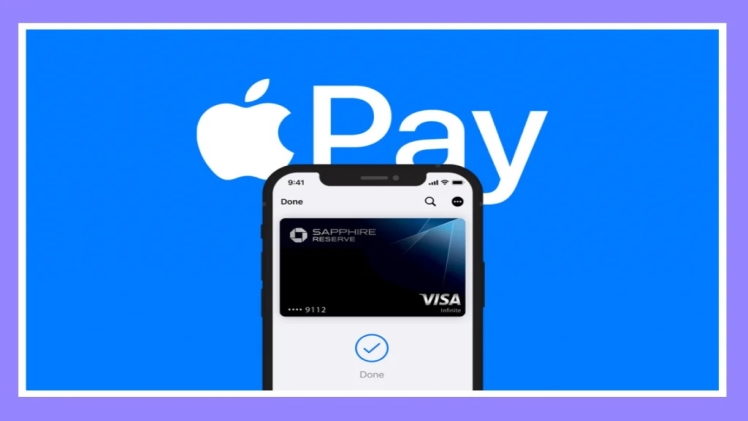Staying updated with current trends is crucial for businesses to thrive. In the world of mobile app development, iOS holds a prominent position for generating higher revenue compared to Android.
Back in 2008, the Apple App Store launched with a mere 500 apps. Fast forward to 2022, and the store boasts a surprising 2.18 billion apps exclusively for iOS users. What’s more astounding is the platform’s ongoing expansion, witnessing approximately 34,000 new iOS apps hitting the store shelves each month within the same year.
For developers and businesses, it’s the ultimate roadmap to crafting cutting-edge apps using the latest trends and techniques in iOS app development.
For that purpose, partnering with an iPhone app development company can be a game-changer, offering invaluable expertise and timely implementation of the ever-evolving trends to ensure businesses stay competitive.
Let’s delve straight into the emerging iOS app development trends that every business needs to follow.
9 Latest Innovative Technologies in iOS App Development
However, emerging Technologies for iOS App Development encompasses a spectrum of cutting-edge advancements reshaping how iOS apps are conceived, designed, and experienced.
Here’s an in-depth look at some key innovations:
SwiftUI Revolution
SwiftUI represents a game-changing evolution in iOS app development and become the preferred choice for developers.
Because it presents a lot of useful features for crafting user interfaces using clear, direct instructions, and streamlining how they’re made. Which lets developers utter the layout and actions of the UI in a simple, and understandable way.
This not only improves productivity but also facilitates the creation of highly interactive and responsive UI elements. Its reactive design allows for automatic updates whenever data changes, ensuring a smooth and dynamic user experience.
The seamless integration with existing Swift codebases makes it an attractive choice for both new and established iOS developers.
Augmented Reality (AR) Integration
Augmented Reality (AR) integration stands as a cutting-edge technology swiftly advancing within iOS app development.
From gaming to retail, education, and interior design, AR revolutionizes user experiences by overlaying digital content in the real world, offering a seamless blend of virtual elements with the physical environment.
However, this emerging tech opens up innovative possibilities for interactive, immersive app functionalities, creating engaging and futuristic experiences for users on iOS devices.
Machine Learning (ML) and AI Integration
The integration of machine learning and artificial intelligence into iOS apps has unlocked numerous functionalities.
However, core ML, Apple’s machine learning framework, allows developers to insert trained machine learning models directly into their apps to empower apps with capabilities like image recognition, natural language processing, and predictive analysis, enhancing user experiences.
From personalized recommendations in e-commerce apps to advanced photo editing features, ML-driven functionalities are reshaping how users interact with iOS apps.
Moreover, Siri’s AI ability facilitates voice-activated interactions, empowering users to execute tasks hands-free, thus continuing to redefine the accessibility and usability of apps.
Internet of Things (IoT)
In iOS app development, the Internet of Things (IoT) emerges as a promising technology connecting diverse smart devices such as thermostats or lights to iPhone apps. This connection lets apps control these devices, making tasks more convenient for users.
For instance, you can use your iPhone to adjust your home’s temperature or switch off lights through an app that uses IoT. It’s all about making devices collaborate to simplify life!
The platform’s focus on security ensures that user data remains protected while allowing for effortless control and automation of connected devices.
5G Impact on iOS App Development
The emergence of 5G technology has changed the landscape of iOS app development, allowing faster and more robust connectivity.
With significantly increased data transfer speeds and reduced latency, 5G enables iOS apps to deliver high-quality video streaming, augmented reality experiences, real-time gaming, and faster data processing.
This technology not only increases existing app functionalities but also unlocks new possibilities for developers to create immersive and data-intensive applications.
However, the improved network capabilities of 5G facilitate a seamless and responsive user experience, setting new standards for iOS app performance.
Cloud-Based Apps
Cloud-based apps in iOS App development revolutionize how apps store and manage data. By leveraging remote servers and computing power, these apps enable seamless access to information from anywhere with an internet connection.
This technology allows iOS apps to offload intensive tasks, optimize storage, and offer scalability. To ensure users to effortlessly sync and access their data across various devices.
However, cloud-based apps are reshaping the iOS app landscape, providing flexibility, reliability, and enhanced collaboration capabilities for users.
Blockchain
Blockchain is an emerging technology gaining power within iOS app development, offering a decentralized and secure approach to data management and transactions.
It introduces a distributed ledger system that ensures transparency and immutability of data, boosting trust and security within apps. This technology allows iOS applications to create tamper-proof records, conduct secure transactions, and facilitate decentralized processes.
As blockchain continues to evolve, it’s poised to revolutionize how iOS apps handle data, enabling enhanced privacy, reliability, and integrity in their functionalities.
iBeacon
iBeacon technology has emerged as a significant innovation within iOS app development, offering location-based services and personalized experiences.
These small, low-energy Bluetooth devices transmit signals that iOS apps can detect, allowing for precise indoor positioning and context-aware interactions.
However, this technology allows iOS apps to deliver targeted content, notifications, and experiences based on a user’s proximity to iBeacons, revolutionizing how businesses engage with their customers in physical spaces.
As iBeacon technology continues to evolve, it’s poised to redefine location-based interactions, facilitating seamless, hyper-targeted experiences for iOS app users.
Improved Security
Apple’s strict focus on user data protection is reflected in its robust security measures and privacy policies for iOS apps.
The platform directs app developers to adhere to strict guidelines to ensure user data privacy and security. With features like App Tracking Transparency, users have greater control over how their data is used by apps.
Additionally, iOS apps are required to obtain clear user consent before accessing sensitive data, reinforcing user trust and confidentiality. Apple’s ongoing commitment to enhancing security measures serves to bolster user confidence in the iOS ecosystem.
Conclusion
The iOS app development future will be bright and profitable with the emerging technologies and innovations. By leveraging the technologies, businesses can engage with a wider audience more easily and efficiently.
However, staying up with these trends is not just a matter of staying current; it’s a necessity for businesses aiming to excel in the dynamic and competitive digital market.
Embracing these advancements isn’t merely about adopting the latest technology but rather about leveraging these trends to craft exceptional user experiences and propel businesses forward in an era where innovation and adaptability are key to success.





